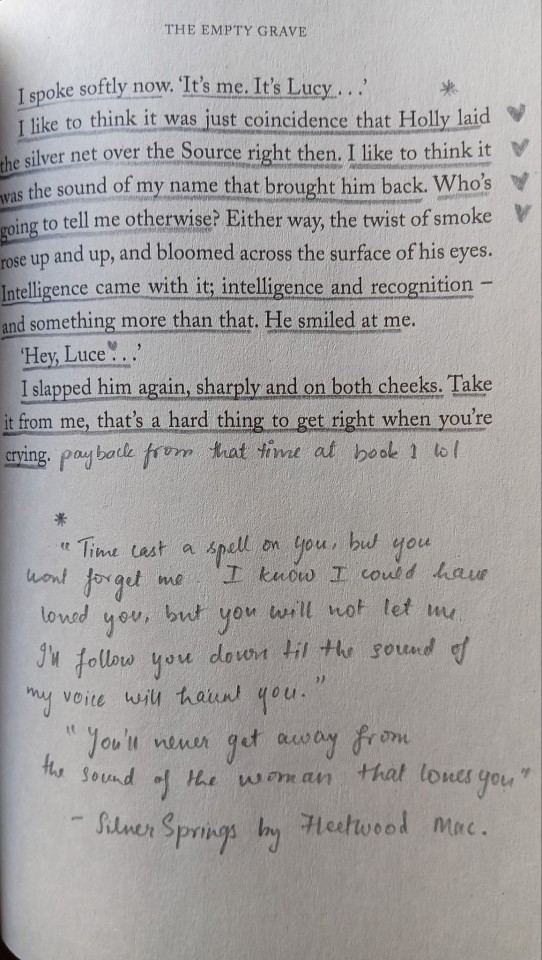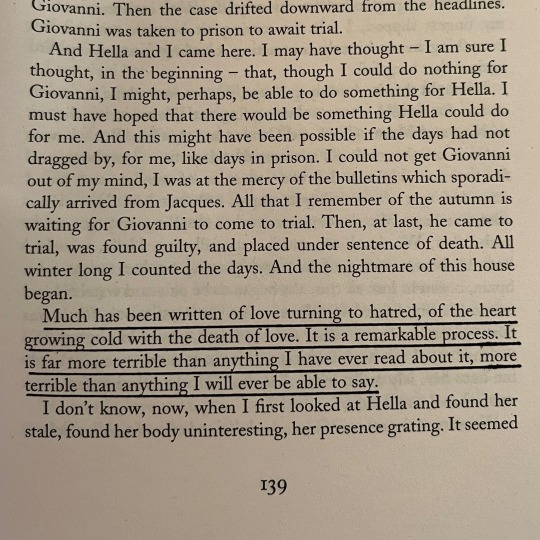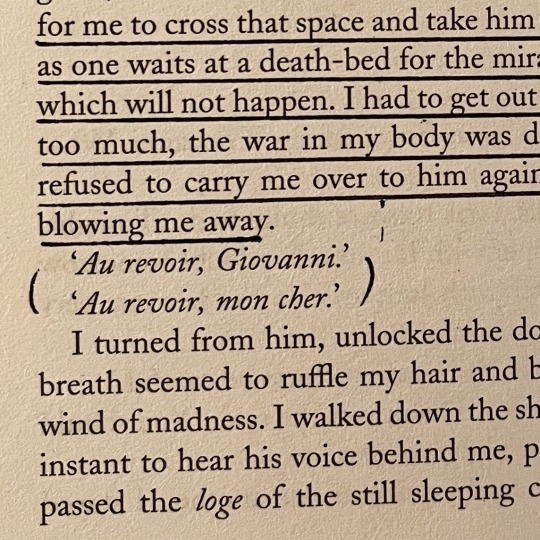#book analysis
Text
I love that every victor from District 12 won by breaking the rules.
Katniss was proficient with a bow and in a forest because she went past the fence and hunted game illegally; Peeta survived because Katniss threatened for the games to not have a victor after the promised rule (presumably influenced by Haymitch?) if he wasn’t saved; Haymitch won because he used the capitol forcefield against his opponent, bringing their weapon into his game; Lucy won because of rat poison brought into the arena and Snow feeding her scent to the snakes.
There was not a victor from twelve that didn’t backhand the Capitol with their survival. lmao.
#the hunger games#thg#the ballad of songbirds and snakes#tbosas#katniss everdeen#peeta mellark#haymitch abernathy#lucy gray baird#district twelve#victors#magth#book analysis
9K notes
·
View notes
Text
Oh my god I just realised that the first time Kaz and Jordie got cornered by gang members they shoved Kaz in the canal and Jordie fished him out and it’s all a metaphor not only because Kaz used Jordie to survive to get back to the city from the Reaper’s Barge so it was once again Jordie who helped him out of the water but because now Kaz is drowning and Jordie isn’t there, he’s drowning in the Ketterdam harbour and his brother isn’t there to fish him out excuse me I’m just gonna go cry for eternity I’ll be right back
#grishaverse#six of crows#leigh bardugo#crooked kingdom#kaz brekker#inej ghafa#nina zenik#jesper fahey#wylan van eck#matthias helvar#kanej#kaz and jordie#jordie rietveld#kaz rietveld#*cries in a corner*#book analysis#soc analyst#soc analysis#six of crows analysis#fantasy books analysis#fantasy book analysis
536 notes
·
View notes
Text
One of my favourite things about The Secret History is how one of the most famous quotes is “beauty is terror” and the whole aesthetic of the fandom embodies that exact sentiment, most times unknowingly. The piles of teacups with old dregs around the living room, the whisky stains, the cigarette butts, the description Henry’s apartment when Richard goes to get his book or the twins’ apartment when they have their first dinner. It’s terrible, the whole thing is a mess, and we all found such beauty in it, it’s amazing.
#the secret history#donna tartt#secret history#chaotic academic aesthetic#dark academia#chaotic academia#academia#booklover#booklr#book analysis
775 notes
·
View notes
Text
*shoots up from bed* HOLD UP!
So. Okay. Monstrous regiment, after climax. Polly is meeting with Vimes and he’s giving her the vibes of this chill, not particularly noble dude who actually cares about human lives and stuff. It was a great conversation and one of my fave moments from the book, as a certified Vimes lover. But.
There’s one thing I JUST NOW realised happened in it. When Polly’s worried about all the ‘people in the other room’ (Rust and such), Vimes gives her a smile and says to not be worried because ‘I was once a seargant too’. This is obviously hillarious and it implies that Vimes knows how to manipulate the people in power to do what he wants them to, which we already knew, he is a nuisance to the nobs. But.
This book is set AFTER NIGHT WATCH. He was a SEARGANT TOO. Seargant in a special, almost military-esque rank during a really shitty situation. And it wasn’t that long ago. Or was it thirty years ago? Does it matter if the memory is still fresh in his mind?
HE’S TALKING ABOUT KEEL. HE’S TALKING ABOUT BEING JOHN KEEL. I AM GOING TO GO INSANE OVER HERE. FUCK THAT’S A GOOD DETAIL TO INCLUDE.
I am once again tipping my hat to Sir Pratchett for his writing. Fuck these books. How am I supposed to ever think about anything ELSE?!?!
#eerie’s feelings#discworld#sam Vimes#samuel vimes#commander vimes#john keel#the glorious 25th of may#night watch#monstrous regiment#polly perks#book analysis#well more of me noticing something that’s left in plain sight#but Yea#I checked the publication order#and it fits so well#gnu terry pratchett#sir terry pratchett#pterry
931 notes
·
View notes
Text
I always accidentally fall into the trap of imagining Lockwood as this cool, tall, serious teen in a swishy coat, and George as the quirky, silly, “trousers are for wimps” when it’s kind of the opposite?
Lockwood who pretends he’s a blue whale when he drinks orange juice with bits, who has a weakness for big hats and wears silly disguises without batting an eye. Lockwood who reads gossip magazines and is awful at accents, and insists on wearing said long swishy coat even though he’s tripped over it on multiple cases.
Compared to George who is actually quite serious apart from when he’s drawing rude cartoons on the thinking cloth, who cares more about his research and a good meal than his appearance. George who considers solving The Problem his own personal mission, who’s very matter-of-fact.
Obviously Lockwood is very serious too, and George can be silly and sarcastic, but I tend to hc them wrong at first until I check myself and remember Lockwood is (affectionately) the more ridiculous out of the two.
#yeah#lockwood and co#anthony lockwood#george cubbins#george karim#bobby originals#bobby's hot takes#book analysis#show analysis
365 notes
·
View notes
Text




4th of december,
the remains of fall and my undying love for pomegranates <333
ig: tulipp.reads
#studyblr#literature#study#studyinspo#studygram#bujo#studyblr university#study with me#book quotations#booksbooksbooks#bookshelf#book analysis#book review#book quotes#book recs#book recommendations#book annotations#bookblr#booktok#bookstagram#academia#light acamedia#dark academia#studylustre#problematicprocrastinator#myhoneststudyblr#seminalstudy#emmastudies#athenastudying#heypay
276 notes
·
View notes
Text
I know I’m like half a year late to recommend it, but The Sin Squad just put out a great video on how difficult it can be to find actual dog whistles and problematic material in fiction versus paranoid reading (aka gearing yourself up to find a reading to such things where they might not be intended)
youtube
I recommend it for everyone to at least give it a few minutes if your time because it’s some solid work and high quality analysis!
#lion king#film analysis#book analysis#literature#literature analysis#the sin squad#books#YouTube#literary analysis#fiction analysis#disney#parahumans#paranoid reading#dog whistles
148 notes
·
View notes
Text
With The Secret History, I think the first time you read it, you shouldn’t analysis it at all. You need to truly be blinded by the beauty and characters before you start to read into it and understand the criticism.
That being said, I think people who completely ignore the messages being sent by that book are missing out entirely as the blindness you first feel only becomes significant once you realise that Tartt completely manipulated you into becoming just like Richard.
#literature#books#dark acamedia#donna tartt#the secret history#book analysis#classical#henry winter#richard papen#francis abernathy
878 notes
·
View notes
Text
Hot take.
In the Homeric world, as a hero (e.g. Achilles Odysseus), you gain HONOUR during life, and after you die, you gain the GLORY, which will offer you immortality through songs that start getting written in your name. Basically, you remain in the memory of everyone, and this is the way you become immortal!
Henry was so in love with Homer and the Homeric idea of GLORY, that he tried turning himself into a Homeric hero. He wanted to become immortal, and through his "action" from the end of the book (trying to not spoil it), he thought that he'd be a saviour, a hero, saving others by sacrificing himself. Therefore, becoming immortal according to the Homeric laws.
#the secret history#dark academia#donna tartt#tsh#henry winter#richard papen#book analysis#yes im a lit students and I need to know these inside out for my exams
230 notes
·
View notes
Text
Highbottom fully had a vendetta against Coriolanus because of his unresolved emotions from the betrayal/breakdown of his friendship with Crassus Snow, but also just think of the greek tragedy that is the implication that he was trying to keep Coriolanus from going down the same path as his father (regardless of how ill-thought through his methods were) by being hypercritical of everything he did, nitpicking every little thing ABOUT him and doing his best to cut him off at every turn to dissuade him from pursuing power at the cost of his humanity the same way Crassus did.
The sheer irony of it all eventually backfiring on him and only serving to make Coriolanus ever hungry, obsessed with proving himself and instilling his drive to obtain and covet power so he can be on the top within the country he calls home.
Essentially ensuring that Highbottom had a direct and indirect hand in the creation of BOTH of the worst things to ever happen to Panem. The Hunger Games as a whole and President Coriolanus Snow.
#the hunger games#foxglovevibes#character analysis#film analysis#book analysis#coriolanus snow#casca highbottom#crassus snow#a ballad of songbirds and snakes#abosos movie and book
177 notes
·
View notes
Text
Actual Conversation In The Book Mockingjay
Hijacked Peeta: You're short and plain looking lol.
Katniss: *knows she shouldn't say what she's about to say*
Katniss: You've looked better yourself.
Peeta: That's not very nice to say to me when I'm like this.
Katniss: You're the nice one, not me.
#the hunger games trilogy#the hunger games#hunger games#books#mockingjay#literature#book analysis#media analysis#media commentary#character analysis#character dynamics#peeta mellark#katniss everdeen#everlark#katniss and peeta#katniss x peeta#funny#hijacked peeta#character appreciation#literary analysis#humor
150 notes
·
View notes
Text
It genuinely keeps me up at night that when Van Eck attempts to reveal to the Merchant Council that Wylan can’t read, they all react exactly as Wylan feared they would. (Spoilers ahead!) Of course since they don’t believe him and Wylan’s brilliant memory for Jesper’s words protects him we don’t see the full force of their response, but it is made PAINFULLY clear that they all would have responded the same way Van Eck did - “How could you say such things about your own blood?”. It’s an incredibly meaningful and arguably subtle detail that Bardugo implements to remind the reader that although Van Eck was our main antagonist in this case, there is no singular villain in this story because what the characters are fighting is an ultimately unbeatable source. The system is impossible to truly defeat because it is a hydra, we see that when Dryden’s father died he took on the role of the Council and acted the exact same way he did, and if Van Eck had raised Wylan to one day take over from him then he too would have been forcibly moulded into that shape by the poisonous environment of this governing body. The defeat of Van Eck, had Kaz not amended his will to name Wylan his inheritor, would have been only that: the downfall of a singular man, to be easily replaced by another with the same dangerously capitalistic values and crude methods of implementing them. It would not have been any change in the system that oppresses the main characters - I think it’s kind of similar to the Hunger Games (spoilers ahead) when Katniss chooses to kill Coin instead of Snow because she realises that killing Snow doesn’t actually change the system if someone else will simply step into his shoes. We also see this reflected in Kaz and his mission to destroy Rollins, since by doing so he too has taken the actions Rollins did. When Inej points out their similarities he denies it, saying “I don’t sell girls, I don’t con helpless kids out of their money”. Inej replies with the gentle, HEARTBREAKING sentence: “Look at the floor of the Crow Club, Kaz”. And this is so important because Kaz has no consideration for what happens to those people once they step outside his door. How do they fair after he scams them? How many of them have had no other money to fall back on? Did one of them sell their daughter to be able to pay off their debts to him? He’d never know, he just had the money and that’s all he thinks about. But if that girl survived long enough to want revenge, who would she blame? Say she didn’t want to blame her parents, like Kaz doesn’t want to blame Jordie, then who becomes the manifestation of all her hatred, the one thing she has decided that destroying will cure her? Kaz does. Just as Rollins has for him.
Every system of this city is a hydra, and there are so many beautifully written reminders of this without forcing it down our throats, but there is also the hope of genuine, real change. In Wylan, joining the Merchant Council as someone opposed to its views, as someone who has lived in both sides of this city and been abused by both of them, as someone who understands that real change is hard to implement. In Inej, as she journeys against the system that abused her not for revenge, but for the protection of all the children who have been hurt and killed, of all the children being hurt and killed, and of all the children who would have been hurt and killed if she didn’t stop the slavers who sought them, as someone who knows that real change is action. In Jesper, as someone raised far from the suffocating closed-minded atmosphere of the Merchant Council and who can support Wylan through it, as someone who knows that striving for real change is messy and chaotic, but that it’s where he thrives. In Matthias, who died believing that the world could truly change, who died believing in Nina, believing in himself, and believing that his death was a necessary sacrifice to real change, even though he wanted it to be peaceful. In Nina, as someone who had learned that real change cannot always be won with violence, as someone who will learn to use her new power to restructure a civilisation, as someone who will spend the rest of her life striving for change because nothing could ever be worse than her beloved having died in vain. And in Kaz, in the small ways, in the fear of what he could become that will hold him back from becoming the next head of the hydra, in his love for Inej shifting his perception of the world, and in his slow journey of healing, maybe one day killing Rollins will be enough. And if that doesn’t work, he’ll burn the world down and start it all again.
#every so often I start to think I’ve run out of posts for you guys#then something like this hits me#there’s always something new to say#i love it#grishaverse#six of crows#leigh bardugo#crooked kingdom#inej ghafa#kaz brekker#nina zenik#jesper fahey#wylan van eck#matthias helvar#kanej#wesper#helnik#book analysis#fantasy books#soc analysis#soc analyst#soc meta
627 notes
·
View notes
Text
One thing I really did enjoy about the Dead Poets Society book (even if I still don't like it more than the movie) is the emotion in it. The first scene with Neil's father feels uncomfortable in the book and its compelling. The anger, Todd's inability to comfort him, especially the early on mention of Neil hurting himself when upset. Then later on in the book, with the deskset scene, how helpless it feels. Neil wasn't a boy who could make everyone feel alright again, and I admire that about the book. (Because its more relatable) He was just a kid struggling to regulate his emotions. To explain them would have been impossible. The sudden bond between Todd and Neil also makes much more sense in the book because Todd is the only one who recognizes it. They were both so neglected it shaped them as people, even if it was different for both of them.
Also rip Neil Perry you would've loved gay marriage and therapy
#dead poets society#dps fandom#dps#neil perry#todd anderson#sad shit#book analysis#anderperry#ethan hawke
91 notes
·
View notes
Text

LOCKLYLE BRAINROT IS A CONSTANT MOOD.
#lockwood and co#anthony lockwood#lucy carlyle#save lockwood and co#cameron chapman#george cubbins#jonathon stroud#ruby stokes#holly munro#book analysis#lucy and lockwood#lockwood and co netflix#i love them#Spotify
82 notes
·
View notes
Text
THE MIRROR. BUZZES. LIKE A BEE.
JONATHAN STROUD ARE YOU JOKING

#lockwood and co#Lockwood and co spoilers#the whispering skull spoilers#Jonathan Stroud#bobby originals#book analysis
169 notes
·
View notes
Text




12th of february,
I love this book so much 😩
ig: tulipp.reads
#studyblr#literature#study#studyinspo#studygram#bujo#studyblr university#study with me#giovannis room#james baldwin#bookstagram#booksta#booksbooksbooks#book analysis#book recs#book recommendations#seminalstudy#myhoneststudyblr#problematicprocrastinator#booktok#book review#book quotes#bookworm#studyspiration#study aesthetic#light academia#academia#classical literature#classics
87 notes
·
View notes